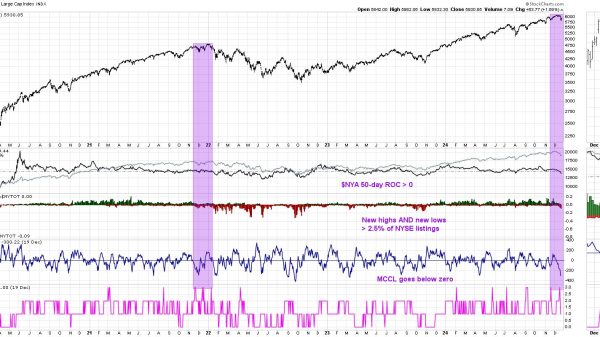The brewing controversy over mis-sold car loans has forced Santander UK to set aside £295 million to potentially compensate aggrieved motor finance customers.
The bank joins a small but growing list of lenders that have started to make provisions for the growing scandal, which some analysts believe could leave the car loans industry footing a redress bill of as much as £30 billion.
Santander UK’s move takes the total amount earmarked by firms for compensation costs so far to just under £1 billion. This includes £450 million set aside in February by Lloyds Banking Group, a leading player in the vehicle finance market.
Expectations that lenders will be forced to redress borrowers en masse have been growing ever since the Financial Conduct Authority (FCU), the regulator, this year began a wide-ranging review into potentially unfair commissions in motor finance deals.
A landmark Court of Appeal judgment last month has significantly expanded the scope of the potential problem facing the industry, fuelling speculation that banks and the lending arms of car manufacturers face a crisis akin to the £50 billion payment protection insurance scandal.
The court ruling was the trigger for Santander UK’s provision, which was disclosed in its third-quarter figures.
The lender was originally due to publish its results in late October but delayed the release at the last moment to consider the ramifications of the surprise court judgment.
It said on Wednesday that it had decided to set aside money “in light” of the ruling and that £295 million encompassed “estimates for operational and legal costs, including litigation costs, and potential awards”. It cautioned, however, that there were “significant uncertainties as to the extent of any misconduct, if any” and that “the ultimate financial impact could be materially higher or lower than the amount provided”.
Analysts at S&P, the credit rating agency, said the development “illustrates the potential size of affected lenders’ liabilities” over motor finance.
The provision contributed to a sharp fall in Santander UK’s pre-tax profits to £143 million in the three months to the end of September, from £558 million a year earlier.
It is a blow to the bank, which is the British division of Santander, Spain’s biggest lender. Santander UK is one of several lenders that has seen a rise in customer complaints and county court claims over car loans since the FCA banned discretionary commissions in motor finance in early 2021.
Commissions are paid by lenders to car dealers for arranging loans. Some firms used discretionary arrangements, where commissions were tied to the interest borrowers paid on their loans. The authority banned them over concerns that the arrangements encouraged the sale of more expensive credit.
The jump in consumer complaints about these commissions in recent years prompted the watchdog to start an inquiry in January into discretionary arrangements struck as far back as April 2007. The broad scope of the continuing review stoked speculation that lenders might be forced to compensate customers, expectations that have been further fuelled by last month’s court judgment.
The ruling is significant because it applies to all types of motor finance commission, not just discretionary arrangements. The court found that any commission that was not properly disclosed to a borrower, or consented to, was unlawful and it decided that lenders were liable to repay the money to consumers.
This sent shockwaves through the car loans industry because it set a much higher threshold for disclosure and consent than had previously been required by regulation. Several lenders temporarily suspended their motor finance operations while they overhauled their procedures to ensure they were compliant with the ruling, causing chaos in the market.
The industry is now waiting for the Supreme Court to give its view on the matter. Close Brothers and FirstRand, the lenders at the centre of the cases considered by the Court of Appeal, have said that they intend to appeal to the UK’s highest court. The FCA wants the Supreme Court to “decide quickly” whether it will grant permission to appeal.
The crisis gripping the car loans market “exemplifies” problems with the Financial Conduct Authority’s approach to regulation, the head of the motor finance trade body has told peers.
Stephen Haddrill, the director-general of the Finance & Leasing Association, said a Court of Appeal ruling last month on the disclosure of commissions paid by lenders to credit brokers — mainly car dealers — arranging motor finance showed that there “hasn’t been clarity in the regulation about what should be made transparent”.
He told the House of Lords financial services regulation committee: “A lack of certainty is exemplified by what we’ve seen around motor finance in the last few weeks, in particular the inconsistency between the law and regulation.”
In 2019, following a lengthy review by the FCA of the motor finance market, the authority decided against a big overhaul of its disclosure requirements to force firms to be explicit with borrowers about commission amounts. It said at the time that “we doubt whether such changes would result in a significant change in behaviour” and added: “Consumers are unlikely to engage with detailed explanations of complex commission models.”
Yet the court in October ruled that “secret” and partially disclosed commissions in motor finance were unlawful. This mis-match between common law and the FCA’s rules is at the heart of the current turmoil in the car loans market and potentially paves the way for a flood of consumer compensation.
Asked by the committee on Wednesday about “secret” commissions in the industry, Haddrill replied: “Why did the FCA allow it to continue?”
His criticisms echo comments made by Sir Howard Davies, the former chairman of the FCA’s predecessor body, the Financial Services Authority, who told the committee last month: “I am disappointed that there has not been sufficient regulatory clarity on the rulebook, which has meant that the court has been able to step in with its own interpretation.”
A spokesman for the regulator said: “We are aware of the impact that the Court of Appeal judgement has had on firms and the market in general.”
More broadly, the FCA has been criticised by some in the City in recent years over what some consider to be an overzealous approach to regulation. Rachel Reeves, the chancellor, used her first Mansion House Speech to City grandees a week ago to argue that rules brought in since the 2007-09 financial crisis had “gone too far”.
Haddrill said there was “a surfeit of complexity” and told peers: “We feel that the regulatory regime at the moment is not conducive to lending”.
Anthony Coombs, the chairman of motor finance company S&U, which has drawn scrutiny from the FCA, also appeared before peers and said: “The FCA is not fit for purpose, at least as far as our sector is concerned. It is oppressive, it is deterring investment in the industry, it is inconsistent, and gradually it is smothering our section of the financial services market.”
Read more:
Santander UK sets aside £295m for car finance scandal





























